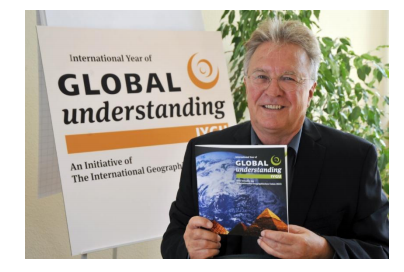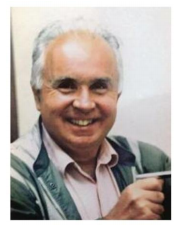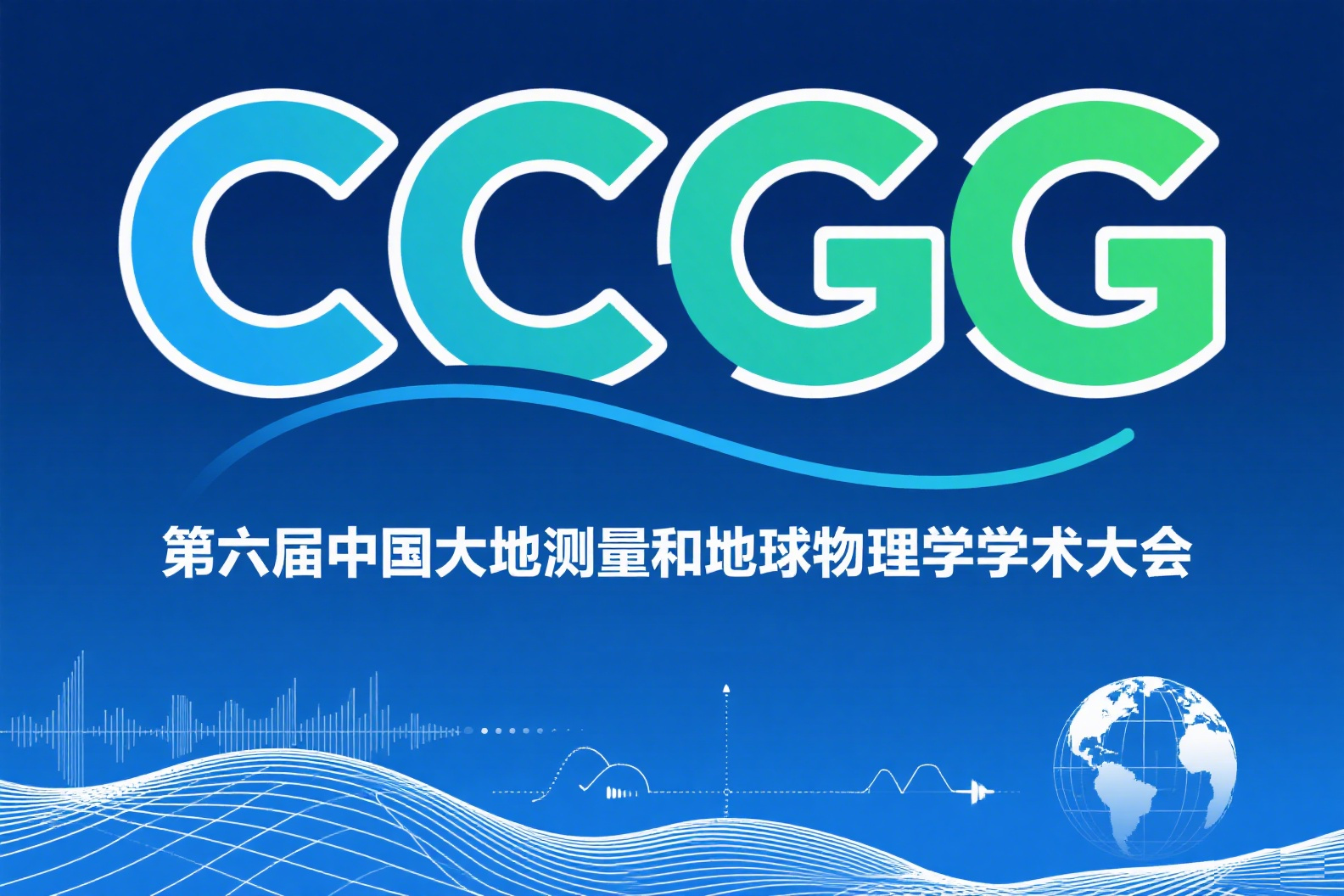The IUGG Electronic Journal Volume 15 No. 10 (1 October 2015)
INTERNATIONAL UNION OF GEODESY AND GEOPHYSICS UNION GEODESIQUE ET GEOPHYSIQUE INTERNATIONALE
The IUGG Electronic Journal
Volume 15 No. 10 (1 October 2015)
This informal newsletter is intended to keep IUGG Member National Committees informed about the activities of the IUGG Associations, and actions of the IUGG Secretariat. Past issues are posted on the IUGG website (http://www.iugg.org/publications/ejournals/). Please forward this message to those who will benefit from the information. Your comments are welcome.
Contents
1. Grants Programme for 2016-2019
2. IUGG support for scientific meetings to be held in 2016
3. The International Year of Global Understanding
4. News from the International Council for Science (ICSU)
5. Awards and Honors
6. Obituary
7. Meeting calendar
1. Grants Programme for 2016-2019
IUGG continues its Grants Programme for 2016-2019, which will complement the Union programme of funding symposia and workshops organized or co-sponsored by Union Associations and Union Commissions (see item 2 of this issue). Key priority areas are defined for the Grants Programme in line with IUGG overall scientific strategies:
Creation of new knowledge in Earth and space sciences;
Dissemination of knowledge, data and information on geophysics and geodesy;
Geoscience for sustainable development;
Geoscience and policy interface;
Geoscience education and outreach in developing countries.
Proposals of high quality related to the priority areas will be funded for a fixed term of one or two years. The IUGG Grants Programme aims to support projects of importance to the international geophysical and geodetic community, which will explore new scientific ideas and develop future international initiatives. A typical proposal may be for a workshop or a meeting of experts from several disciplines to develop a specific scientific programme or assessment, particularly addressing an enhancement of geophysical research and Earth science education in underdeveloped and developing countries. Although the range of activities supported is broad, the project proposals should be of scientific and societal importance, and their results are expected to provide clear recommendations to politicians and other decision makers at national and local levels and to the general public in terms of the urgent actions to be undertaken. The deliverables of the projects should bring increased visibility to IUGG and the Union Associations.
Proposals can be submitted by IUGG Associations and Union Commissions ONLY. Associations' bodies (e.g. Commissions, Task and Work Groups) seeking funding for a project should submit their proposals via relevant Union Associations or Union Commissions. Preference will be given to proposals that are multi- and trans-disciplinary and truly international, especially those involving more than two of the IUGG Associations and Union Commissions and representatives of several nations and countries. Proposals should be global or regional in scope and involve a multi-national group, especially scientists from developing countries, women, and younger researchers.
The number of proposals to be funded per year is not fixed, but depends upon relevance, quality, proposal budget requests, and the total amount of funds available for the Grants Programme. The total funding for the Programme in 2016-2017 is US$40,000. The same amount of funds is reserved for 2018-2019. An average grant is US$10,000-15,000. Co-sponsorship from other sources is encouraged.
The deadline for the project proposal submission is 1 April 2016 for the first call. Following the call, all proposals will be reviewed by the IUGG Bureau. If necessary, specialized experts may be invited to participate in the review process. Successful applicants will be notified by 1 July 2016.
Grants will be made for periods of one or two years commencing from 1 August 2016. Funds will be allocated as a function of need and quality, and projects may be cancelled if progress has been unsatisfactory. For funded projects, an annual report is to be sent to the IUGG Secretariat by 31 October 2017 and subsequently annually on the same date by all multi-year projects. A final report is to be submitted within three months of the date of the project termination. Applicants are encouraged to submit their applications electronically. The application form can be obtained from the IUGG Secretariat at the request of a Union Association or Union Commission Secretary General.
Further information is available at: http://www.iugg.org/programmes/grants2019.php
2. IUGG support for scientific meetings to be held in 2016
The program of IUGG support for scientific meetings (e.g. workshops, advanced schools, symposia) is one of the most important means by which the Union and its Associations pursue a goal of promoting geophysics and geodesy through international collaboration. A fraction of the IUGG's budget is devoted to the support of these scientific meetings. The IUGG Executive Committee places great emphasis on maintaining high scientific standards, coverage of a balanced spectrum of topics, and an appropriately broad and international flavor for the scientific program of the meetings. In that respect, the ICSU rules on non-discrimination in the access of qualified scientists from all parts of the world to any IUGG-sponsored meeting apply.
The number of co-sponsored meetings ranges from 10 to 15 (up to US$2,000 each). Accordingly, not all meeting proposals worthy of support can be awarded IUGG sponsorship. The following guidelines for obtaining IUGG sponsorship should be observed by prospective proposers:
IUGG-sponsored scientific meetings should have a well-defined and scientifically relevant theme, should be scheduled at a propitious time for significant progress in the field, and should be of interest to young researchers as well as senior experts.
While the IUGG embraces all fields in geophysics and geodesy, a proposed program should maintain a balanced scope relevant to IUGG Associations. Each proposal will be judged on its own scientific merits.
Given the international nature of the Union, meetings are by definition internationally oriented. This requires a well-balanced geographical distribution.
Normally, the initiative to propose a scientific meeting for IUGG sponsorship originates from a group of scientists in a certain field. Prospective meeting organizers should contact the respective Association Secretary General (ASG) well in advance of their intended proposal submission, by sending a request for IUGG support until 15 October 2015.
The scientific merit of each scientific meeting's proposal will be evaluated by the respective ASG, taking into consideration comments and advice received from the Association Executive Committee. The ASGs should communicate their recommendation for selection to the IUGG Secretary-General before 31 October 2015.
The allocations will be suggested by the IUGG Secretary-General and reviewed by the Members of the IUGG Bureau to assure impartiality. The Bureau will decide on the final selection of the meeting. The decision on the IUGG support will be communicated to the ASGs by the IUGG General-Secretary in a letter of award as soon as possible but not later than 1 December 2015. The IUGG support should be acknowledged in all documents related to a sponsored meeting (e.g. in the scientific program, on the web-page, brochures, publications of proceedings etc)
More information is available at: http://www.iugg.org/meetings/guidelines.php
3. The International Year of Global Understanding
The International Council for Science (ICSU), the International Social Science Council (ISSC), and the International Council for Philosophy and Human Sciences (CIPSH) announced that 2016 will be the International Year of Global Understanding (IYGU). The aim of IYGU is to promote better understanding of how the local impacts the global in order to foster smart policies to tackle critical global challenges such as climate change, food security and migration (see the IYGU Press Release http://www.icsu-geounions.org/files/IYGU_PressRelease.pdf).

Benno Werlen, IYGU initiator and moderator (courtesy of ICSU)
“We want to build bridges between global thinking and local action,” said Benno Werlen, Professor of the Friedrich Schiller University Jena, Germany. “Only when we truly understand the effects of our personal choices – for example in eating, drinking and producing – on the planet, can we make appropriate and effective changes,” said Werlen, who initiated this project of the International Geographical Union (IGU).
IUGG and other ICSU GeoUnions (http://www.icsu-geounions.org) enthusiastically supported the IYGU, both scientifically and financially. In 2016, the IYGU program will be coordinated by Regional Action Centers. The IYGU Secretariat in Jena, Germany, coordinates all IYGU activities. More information on IYGU is available at: http://www.global-understanding.info.
4. New from the International Council for Science (ICSU)
New IRDR newsletter published
The fall 2015 issue of the Integrated Research on Disaster Risk (IRDR) newsletter leads off with a review of the 4+2 formula (four lines of action, underpinned by efforts in two cross-cutting domains) and highlights IRDR family activities that support the 4+2 formula from May through August. It covers activities of Scientific Committee members, IRDR Working Groups, International Centers of Excellence, National Committees as well as IRDR’s co-sponsors and host. The newsletter can be downloaded from:
http://www.irdrinternational.org/wp-content/uploads/2015/09/IRDR-Newslet...
Urban Health and Wellbeing Programme publishes first newsletter
The ICSU-UNU-IAMP Urban Health and Wellbeing Programme published its first newsletter covering developments since the opening of the International Programme Office (IPO) in December 2014. The newsletter features messages from the Programme's sponsors, profiles of IPO staff, and an update on activities such as previous and upcoming events organized by the IPO. The newsletter can be downloaded from:
http://www.icsu.org/news-centre/news/pdf/UHWPNewsletterAug2015.pdf
UNISDR Science and Technology conference on implementation of Sendai Framework for Disaster Risk Reduction
The UNISDR Conference will be held in Geneva, Switzerland, 27-29 January 2016, to analyze how the S&T community can support implementation of the Sendai Framework for Disaster Risk Reduction 2015-2030. ICSU is a conference co-organizer, along with UNESCO, UNU and WMO. More information is available at http://www.unisdr.org/we/inform/events/45270
Source: ICSU web-site
5. Awards and Honors
Christos Zerefos (President of the Greek National Committee for IUGG) received the 2015 Yoram J. Kaufman Unselfish Cooperation in Research Award of the American Geophysical Union for his “broad influence in atmospheric science through exceptional creativity, inspiration of younger scientists, mentoring, international collaborations, and unselfish cooperation in research.” Congratulations to Christos Zerefos!
6. Obituary: Claude Froidevaux (1930-2015)

IUGG Fellow Claude Froidevaux died on 11 August 2015 in Paris, France. Claude Froidevaux was a pioneer in studies of the interplay between physics and tectonics as well as a very dedicated leader in many international associations. Born in Switzerland in 1930, Claude Froidevaux had rather eclectic interests and skills: after a bachelor’s degree in modern history from the University of Lausanne, Switzerland, he switched to physics and obtained a D. Phil. in low temperature physics from the University of Oxford, UK. In 1964, after a post-doctoral research in the University of California at Berkeley, USA, he joined the University of Orsay, France, where he initiated a very successful research group developing experimentation based on nuclear magnetic resonance.
At the request of Jacques Friedel and Claude Allègre, he got interested in geosciences in the early seventies. He rapidly developed a novel approach in understanding of mechanical and thermal processes in the mantle, in collaboration with Gerald Schubert and other scientists from the University of California at Los Angeles where he spent a sabbatical. At a time when plate tectonics was still a new concept, Claude was among the first to introduce physics to explain the Earth’s deformations occurring on both microscopic and macroscopic scales. Linking thermodynamics, rheology, solid-state physics and dynamics he developed mechanical models of the lithosphere and the upper mantle, which had a profound influence on the early developments of modern geodynamics. Claude Froidevaux was very good at attracting and motivating young scientists, who benefited from his clear physical vision of Earth sciences. On his return to Orsay he, with George Jobert at Paris VI and Kurt Lambeck at Paris VII, was instrumental in developing the joint DEA (or Masters) program that was influential in training the next generation of researchers. At Orsay he created very fruitful working conditions for his team, and the ‘Froidevaux group’ in Orsay was a kind of scientific family. In 1986, Xavier Le Pichon asked Claude Froidevaux and his team to join the Ecole Normale Supérieure (ENS) in Paris, where he became Dean of Earth Sciences.
Claude Froidevaux was a very prominent personality of international geosciences. He was among the scientists who promoted the European Union of Geosciences (EUG), a predecessor of the European Geosciences Union (EGU), as Editor of the Terra Cognita journal. In 1995, he was elected President of the International Association of Seismology and Physics of the Earth’s Interior (IASPEI) and became a Member of the IUGG Executive Committee. Many of us keep marvelous memories from the summer schools he organized in Cargese and Porto-Heli and from the IUGG Conference on Mathematical Geophysics in southern France. Claude had a genuine interest both in people and in science even in domains rather far away from his own field. This prompted him to help many, especially earlier career scientists. Claude will be remembered as an optimistic, enthusiastic, and generous personality.
Luce Fleitout and Henri-Claude Nataf (ENS)
7. Meeting calendar
A calendar of meetings of interest to IUGG disciplines (especially those organized by IUGG Associations) is posted on the IUGG website (http://www.iugg.org/calendar.php). Individual Associations also list more meetings on their websites according to their disciplines.
October
- 5-9, ILP, Tokyo, Japan, 10th Workshop of the International Lithosphere Program. ILP Sedimentary Basin 2015 Tokyo. Web: http://www.scl-ilp.org/fileadmin/sclilp/events/ILP_SB_2015_Tokyo_First_C...
- 12-25, IAVCEI, Olot, Spain, 4th International Course on Volcanology (in Spanish). Web: http://www.gvb-csic.es/CURSO/CURSO_OLOT/Home.html
-13-15, EAGE, Celle, Germany, 3rd EAGE Sustainable Earth Sciences Conference ‘Use of the Deep Sub-Surface to Serve the Energy Transition’. Web: http://www.eage.org/event/?eventid=1259
13-16, IAHS, GEO, UNESCO, WMO, Koblenz, Germany, International Conference “Water Resources Assessment & Seasonal Prediction”. Web: http://www.bafg.de/DE/05_Wissen/02_Veranst/2015_10_13.html
- 15-16, IAG, DORIS Analysis Working Group Meeting, Greenbelt, MD, USA, Web: http://ids-doris.org/report/meeting-presentations/ids-awg-10-2015.html
- 26-30, IAG, ILRS Technical Workshop 2015, Matera, Italy, Web: http://geodaf.mt.asi.it/2015_ILRS_TW/index.html
- 26-30, IAHS, Hammamet, Tunisia, International Conference on African Large River Basins Hydrology. Web: http://iahs.info/uploads/Events/Hammamet_2015_Flyer_2nd_call_Oct_2014.pdf
- 27-29, SCAR, WDS, Ontario, Canada, Polar Data Forum II “International Collaboration for Advancing Polar Data Access and Preservation”. Web: http://www.polar-data-forum.org/
November
- 1-4, UNESCO, IUGS, IGCP, Wellington, New Zealand, 7th international symposium on Submarine Mass Movements and Their Consequences. Web: http://submarinemassmovements2015.co.nz
- 2-6, IUGG, The Abdus Salam International Centre for Theoretical Physics, Trieste, Italy. Conference “Future Earth and Space Science and Education (Future ESSE)”. Web: http://indico.ictp.it/event/a14272/
- 9-13, COSPAR, Foz do Iguaçu, Brazil, 2nd COSPAR Symposium. Water and Life in the Universe. Web: http://cosparbrazil2015.org/
- 11-13, GEO, Mexico City, Mexico. GEO-XII Plenary and Ministerial Summit. Web: http://www.earthobservations.org/geo12.php
- 16-17, IAG, VII SIRGAS School on Reference Systems, Santo Domingo, Dominican Republic, Web: http://www.sirgas.org/index.php?id=193
- 18-20, IAHS, EGU, Addis Ababa, Ethiopia. Water-Food-Energy River and Society in the Tropics. Web: http://meetings.copernicus.org/avh10
- 23-25, ISPRS, UNESCO, GFZ, Kish Island, Iran. SMPR 2015. The 3rd International Conference on Geoinformation Modeling & Environmental Monitoring. Web: https://smpr.ut.ac.ir
- 23-26, IAG, 9th International Symposium on Mobile Mapping Technology (MMT2015), Sydney, Australia, Web: http://www.mmt2015.org/
December
- 14-18, AGU, San Francisco, CA, USA, AGU Fall Meeting. Web: http://fallmeeting.agu.org/2015
End of IUGG Electronic Journal Volume 15 Number 10 (1 October 2015)
Editors: Tom Beer, Alik Ismail-Zadeh (Editor-in-Chief), Franz Kuglitsch (Associate Editor), and Kathryn Whaler.


